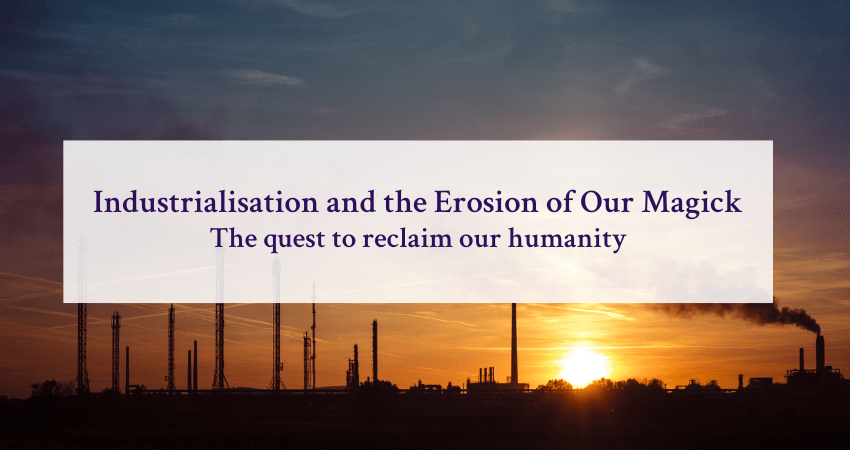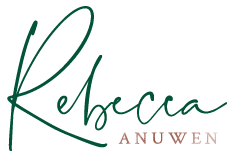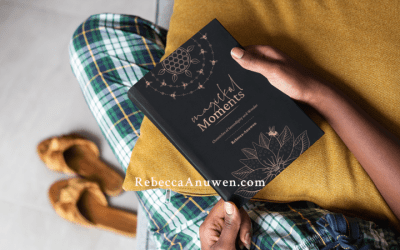
Lately, I’ve become more aware of how engrained it is in our society that people feel the need to prove their worthiness before they dare to chase their dreams and express their innate magick.
It’s as though they’re in a constant state of seeking external approval, awaiting permission to act.
Or worse, they feel guilty about something being easy for them, or guilty to experience something like ‘joy’ or even ‘good luck’ because it can be judged by some as ‘unearned’.
Then I started to read Seth Godin’s latest book The Song of Significance, and something clicked.
In my two decades of work addressing people’s fears, I’ve noticed that the fear of not being good enough is often the root cause. I’ve recognised how profoundly this fear is influenced by family expectations, cultural norms, and societal pressures.
But….
When I read Seth Godin’s book, I realised I ‘d previously overlooked the monumental role industry has played in this phenomenon.
It brought to light the systematic efforts made by industry to reduce individuals to cogs in the industrial machine, stripping people of their human-ness and assigning them a monetary value depending on how productive they were.
The emphasis being on not just what they could produce, but how quickly and how much they could produce. Their ability to produce being their only assigned value and worth.
Success was redefined by personal gain and status—measured in currency—rather than what you could contribute to the greater whole.
I mean, I knew it… but I didn’t really KNOW it.
The Evolution of Society and Industry
From the onset of the Industrial Revolution in the late 18th century to our present digital age, society has undergone remarkable transformations. Paradoxically, these advancements have seen us lose touch with our innate magick – the unique essence that makes us human, the creative force that enables us to transcend the mundane and connect with something larger than ourselves.
The Primal Fears Exploited by Industrialisation
The foundations of industrialisation, born out of necessity and the desire for progress, played upon our most primal and ancient fears: isolation, rejection, and physical harm.
This was not through overt oppression, but rather by subtly convincing us that we were safer within the constraints of regimented routines and standardised roles.
And that if we spoke up and out against the people in charge, we risk being kicked out of the community (sacked), leaving us, and potentially our families, at risk.
This echoing ancient fears of speaking up against the village chief that would’ve had dire consequences to our safety.
These industrialised systems championed uniformity and obedience above all else.
Education and Culture: Tools of Conformity
Traditional education, steeped in these systems, emphasised this conformity. Schools, governed by a cultural paradigm underpinned by industry, steered us away from individual magick.
Passion and creativity were discouraged, eclipsed by the emphasis on practical skills to fit us neatly into predefined industrial roles.
This one-size-fits-all approach began to view individuals as resources.
The Dehumanisation of the Workforce
Humans became cogs in a larger machine – valued not for their unique abilities or creativity, but for their capacity to execute tasks efficiently.
Our society, deeply influenced by industry, began to forget that we were more than just functional entities. We started to lose sight of the innate magick and unique gifts that we have to share with the world.
The Rise of Individualism: Loss of Community and Collective Identity
The industrial mindset shifted us towards individualism, eroding the sense of community and collective identity. We started to perceive ourselves as standalone units, encouraged to think primarily of our own needs, and to compete with others to ensure our own success (and safety), rather than to cooperate and focus on what’s best for the human community.
Gradually, we internalised the notion that everything must be earned or deserved.
The Commodification of Human Emotions and Creativity
Love, joy, freedom, and even magick, which should be inherent and freely given, became commodified, treated as prizes to be won through hard work and compliance.
Recognition and the sharing of our passions, desires, and gifts, once unconditionally celebrated, were now only handed out based on merit, creating a notion that you had to ‘work hard’ to deserve them, to deserve anything.
The Blame Game: Scapegoating as a Distraction
Society then manufactured an industry of blame. Parents, teachers, and other authority figures were made the sole scapegoats for many individual traumas (with a a little ‘t’).
In shifting the blame onto these figures, the greater harm inflicted by the very structure of industrial society – the erosion of our agency and magick, competition, dehumanising of people – went largely unaddressed. It became convenient to focus on individual failings rather than question the status quo.
The Cost of Obedience: Profits over Humanity
Obedience became a profitable trait. It filled the pockets of corporations at the expense of our magick, our joy, and our essential human qualities. This loss, however, is not irreversible.
The tide is turning. A new consciousness is emerging – one that seeks to shift the power dynamic and reclaim our humanity, our magick.
This is a call to choose compassion over competition, to nurture unity and gratitude, to foster abundance for everyone.
Reclaiming our Magick: The Journey towards Collective Transformation
Reclaiming our magick isn’t about proving ourselves deserving of it; it’s an inherent quality that makes us human.
It’s time to reawaken our magick, to reconnect with community, to celebrate our shared passions and unique gifts.
The Dawning of a New Era of Consciousness
The industrialisation era, with its emphasis on conformity and obedience, may have disconnected us from our magick. But as we transition into a new era of consciousness, we have the power to reconnect, to reclaim our inherent qualities, and to reshape the world according to a model that celebrates, rather than suppresses, our magick and our humanity.
This is not just about individual evolution but the collective transformation of our society. It’s time we reclaimed our magick, our joy, our human-ness.
Other Articles You May Enjoy
Embrace Nature’s Magick: Your Journey with ‘Seasonal Soulscapes’
Are you ready to embark on a transformative journey that aligns you with the rhythms of the Earth? Seasonal Soulscapes: A Magickal Journaling Journey Through Nature's Rhythms is a portal to a deeper connection with nature and yourself. Let's delve into how this...
Capture the Wonder with the Magickal Moments: Chronicles of Serendipity and Wonder Journal
Are you ready to step into a realm where every moment is an opportunity for enchantment and discovery? Magickal Moments: Chronicles of Serendipity and Wonder is more than just a journal; it's your personal grimoire, a sacred archive where the extraordinary moments of...
Unleash the Power of Appreciation: Discover the ‘Outrageous Gratitude Journal’
Are you prepared to transform your life through the extraordinary power of gratitude? The 'Outrageous Gratitude Journal: Fuel Your Fire and Embody Your Magick' is here to guide you on an enchanting journey that transcends the ordinary. Let's delve into how this unique...



